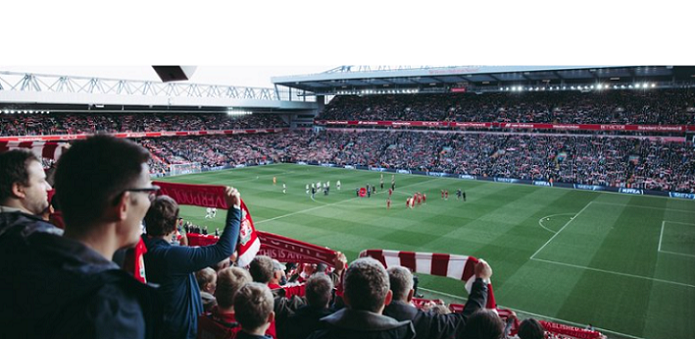
 The year 2022 has been a particularly eventful one in the global sporting landscape, not least on account of the FIFA World Cup Qatar 2022. In this piece we look back at key insights and business data that YouGov delivered on the sporting front.
The year 2022 has been a particularly eventful one in the global sporting landscape, not least on account of the FIFA World Cup Qatar 2022. In this piece we look back at key insights and business data that YouGov delivered on the sporting front.
The FIFA World Cup, being among the most-followed sporting events across the globe, is naturally a huge opportunity for brands and sponsors to reach out to a vast audience. We dipped into YouGov BrandIndex data to examine how Team England and Team USA sponsors were performing in the lead up to the World Cup.
Globally, we took a look at the degree to which official FIFA World Cup sponsors like Coca-Cola, VISA, Adidas, Hyundai, and Kia were making an Impression on fans of the event. Effective sports sponsorship must take into account the media channels that fans are using to consume the event as well as their preferred mediums of advertising, which are topics our dedicated World Cup coverage has touched upon.
It is interesting to note that Premier League fans are such loyalists that a majority of them felt it was wrong to pause the event to accommodate the World Cup. Even so, gamblers, at least in Britain, were pumped up for the event, with half of them saying they would bet on it. In another piece of analysis examining Britain’s football gamblers, we found that they were hearing more about this World Cup in the lead up to it than they did for the previous edition.
Gamers were also abuzz for the World Cup, and this translated into an increased interest in playing EA Sports’ FIFA title in US, Germany and South Korea.
Outside the football World Cup, other major global events in 2022 included the T20 World Cup and the Commonwealth Games. Through YouGov SportsIndex, we found that the Commonwealth Games whipped up a good degree of attention in several participating markets, with Australia leading the way. The T20 World Cup’s sponsors, particularly Booking.com, reaped noticeable dividends from their partnerships with the event in the form of much improved Buzz scores among fans of the event compared to non-fans.
Speaking of sports sponsorship more generally, auto-makers (36%) are deemed the most appropriate sponsors of professional sports teams and leagues, closely followed by tech (34%) and telco brands (34%). Only 12% of consumers felt gambling brands made for appropriate sports sponsors in spite of the well-established links between the gambling and sports industry.
In the world of American sport, we took a look at the global popularity of NBA 2021-22 season winners Golden State Warriors, and found that they enjoy a markedly younger fan base than fans of the five most popular NBA teams. We also cast a look at the most popular NBA players in the US and Britain.
As much a global icon as an American one, Serena Williams’ exit from the tennis world prompted us to look at her global popularity as well as the opinions of her fans on the key issues of inclusion and feminism – causes that she promoted through her career.
Historical BrandIndex data allowed us to look at the brands that gained the biggest upticks in Ad Awareness through advertisements during the Super Bowl over the last five years.
The NFL has made significant strides in promoting itself across the globe, and we took stock of the global popularity of the NFL to find out how those efforts are paying off. Locally, in the US, the NFL is perceived as producing a high standard, beating out other sports properties in the YouGov SportsIndex Quality metric.
The NFL has also made a concerted effort over recent years to highlight its green credentials. About two-fifths of NFL fans feel it is acceptable for brands to communicate their stance on environmental issues, and fans of the two LA teams (Chargers and Rams) are the most likely to describe themselves as environmentalists compared to other teams.
In Britain, a third of sports fans described themselves as environmentalists overall, but there were variances in the share of different sporting fan bases who said so. Nearly half of cycling fans (46%) described themselves as environmentalists compared to only a third of football fans.
